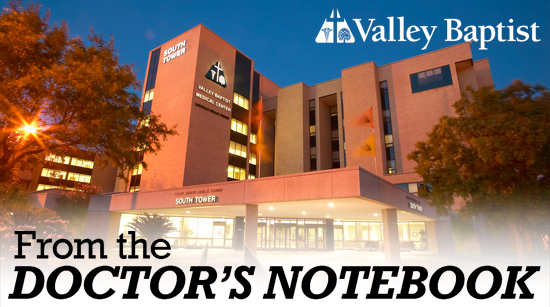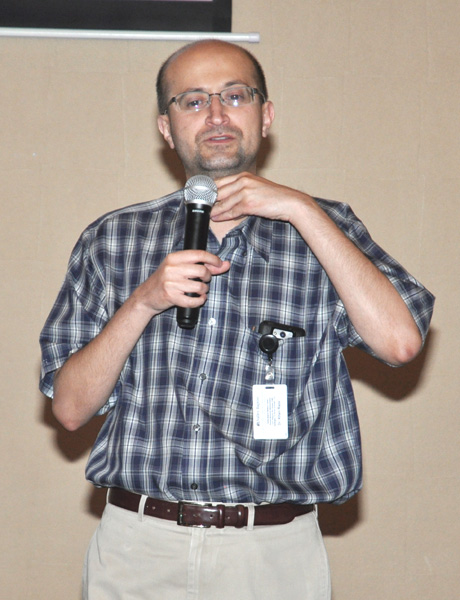- La Feria Community Holds Succesful Business Mixer Event
- Little Nashville to Take Place in Downtown Mercedes
- Lions Basketball Captures District Gold
- La Feria ISD Students Compete in Regional Chess Tournament
- Lions End First Half of 32-4A on a High Note
- La Feria ISD Held Another Successful Parent Conference
- Strong Appearance for Lions at Hidalgo Power Meet
- LFECHS Students Get to Meet Local Actress
- Students Participate in Marine Biology Camp
- Two LFECHS Students Qualify for All-State Band
Sleep Apnea No Laughing Matter
- Updated: September 25, 2015


Dr. Raza Khan, Neurologist, speaks on how sleep apnea can increase the risk of having a stroke.
HARLINGEN – A new neurologist / neuro-hospitalist at Valley Baptist Medical Center, Dr. Raza Khan, recently spoke on how patients who have moderate to severe sleep apnea are at increased risk for suffering a stroke or “brain attack.”
Dr. Khan said sleep apnea is a serious condition — but that many people do not realize how dangerous it can be.
“The problem is that many people do not take sleep apnea seriously,” Dr. Khan said. “They say to their spouse ‘oh you snore really bad, like a motorcycle.’ Smoking is not considered a laughing matter, but sleep apnea still is, for some reason.”
Dr. Khan noted the stress that sleep apnea can place on the person’s body, which goes into “fight or flight” mode while sleeping.
“If you have sleep apnea all night, if you are choking all night, it’s kind of like someone trying to choke you to death,” he added.
With most people, their blood pressure goes down while they are asleep. But with sleep apnea patients, their blood pressure does not go down – which may also place them more at risk for stroke.
There are various types of treatments available for sleep apnea, with the most common treatment involving wearing a specialized mask while sleeping to help the person breathe better at night. Different types of masks can be worn over the patient’s nose or their entire face, depending on their diagnosis. About half of patients have trouble wearing the “Continuous Positive Airway Pressure” masks, though most people eventually get used to them, Dr. Khan said.
Prior to coming to the Valley, Dr. Khan served as medical director of the Howard University Hospital Sleep Disorders Center in Washington, D.C.
For more information on diagnosis and treatment of sleep apnea, consult your physician and visit www.ValleyBaptist.net/medical-services/sleep-center.


